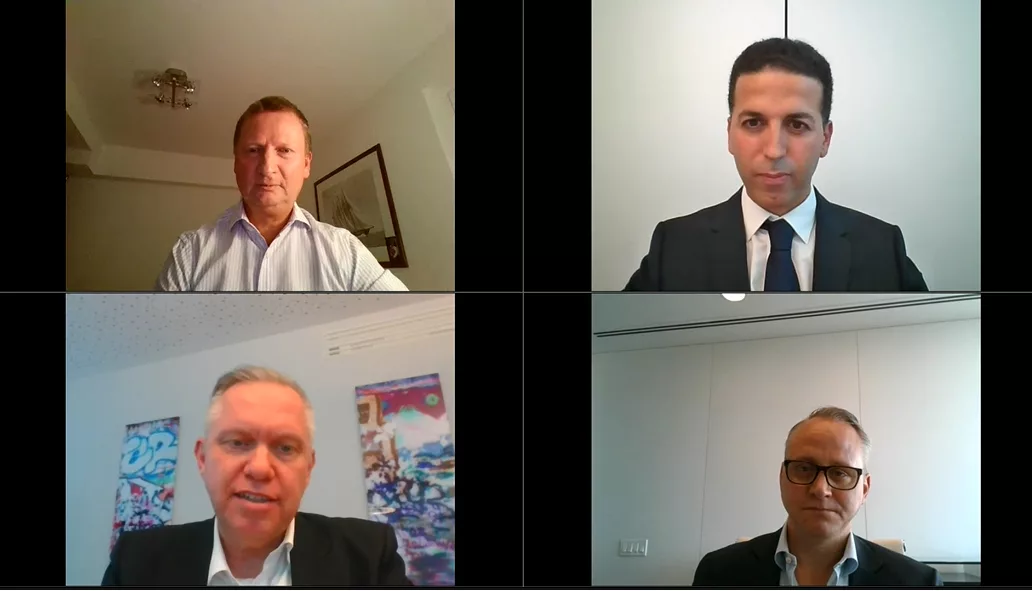14. Investment Talk USA:
What’s next for German cross-border investments?
12 October 2020 – In our “Investment Talk USA” I discussed the current sentiment in the US real estate market with my guests Driss Oualkadi (Deka) and Rainer Komenda (BVK) as well as my US colleague Robert Stamm (Colliers). We placed particular emphasis on the perspective of German institutional investors for whom the US market is a key portfolio component.
Slow recovery of the markets
It is clear that the US markets are more affected by the impact of the COVID pandemic than most European countries. In the global city recovery index with a maximum value of 10, European core locations such as Paris, London and Frankfurt already reach a 7, while US markets such as Los Angeles and Chicago still remain at level 4.
Good economic prospects
However, our discussion has also shown that the outlook for 2021 is positive. Independent from the outcome of the presidential elections, our panellists expect a significant economic recovery, following the strong performance of the US economy before COVID. A remarkable indication of this is currently provided by the development of the unemployment rate. In April 2020, it had risen to 14.7 per cent in the USA. In September 2020, it had already fallen back to 7.9 per cent and has continued to decline since then.
Long-term investment strategies pay off
Overall, it can be seen that the long-term oriented investment strategies of German investors show a high degree of resilience to short- and medium-term shocks such as the COVID pandemic. This long-term perspective is paying off in the current market environment. With regard to the currency market, investment conditions for German investors have again improved significantly as hedging costs have fallen massively. The financing market, which has come to a standstill in the meantime, is also active again. This is very important, not least for the core topic of refinancing.
German investors face domestic competition
At the same time, however, competition for core properties in the US remains fierce, as domestic investors have also accumulated a large volume of dry powder that wants to be invested in this persistently low interest rate environment. German investors are prepared to face this competition and will continue to be selective. Among other things, the aspect of tenant reviews is becoming increasingly important in order to ensure stable long-term cash flows for the German funds.

